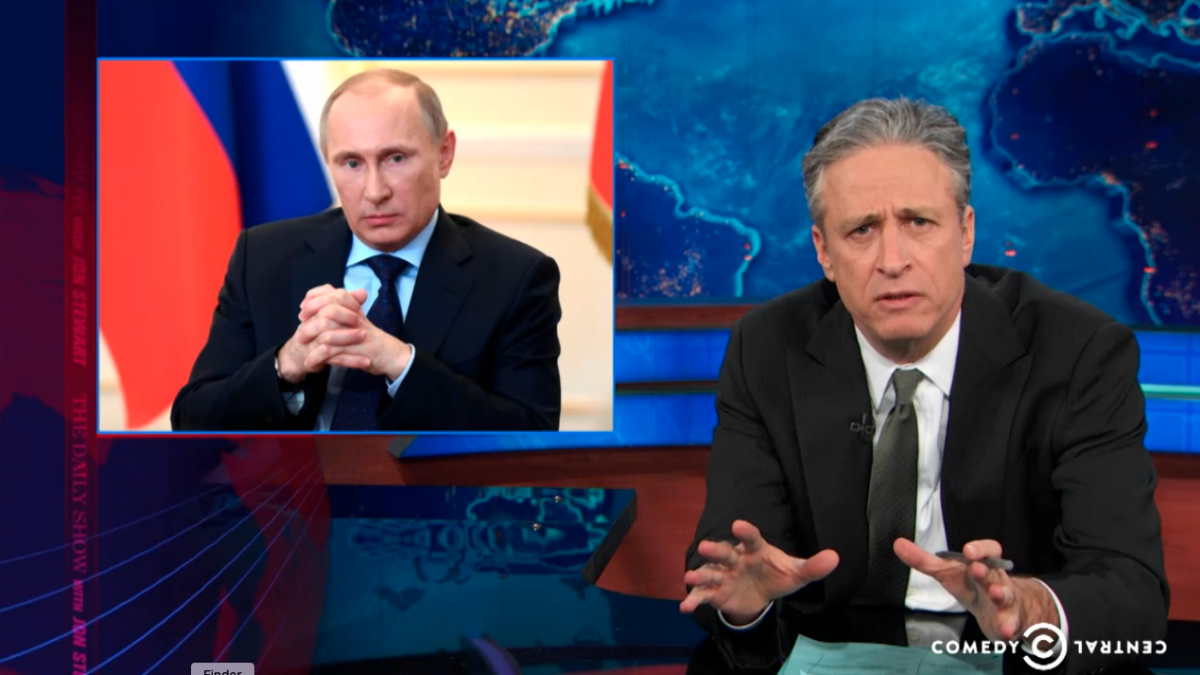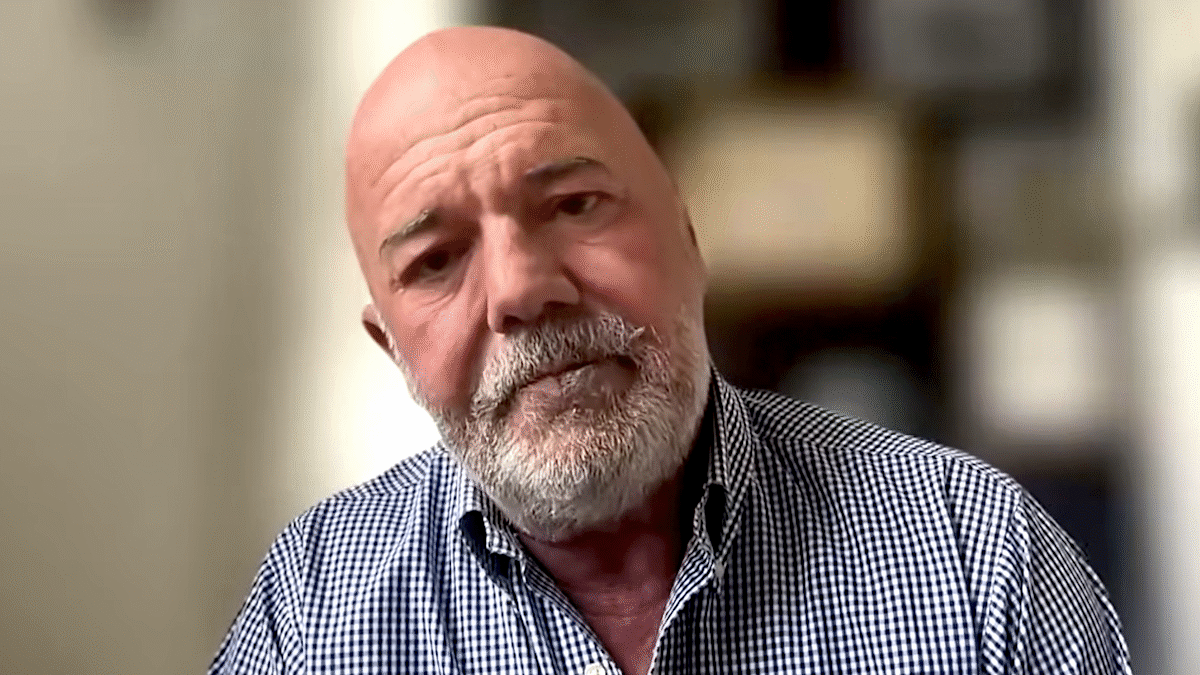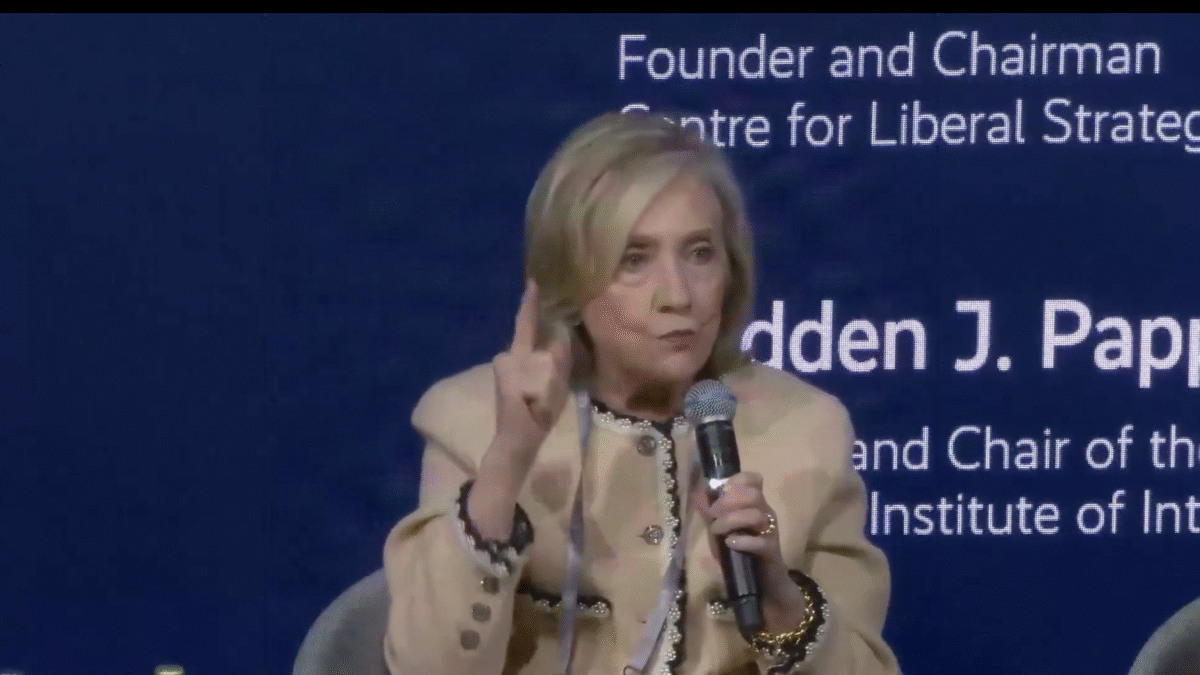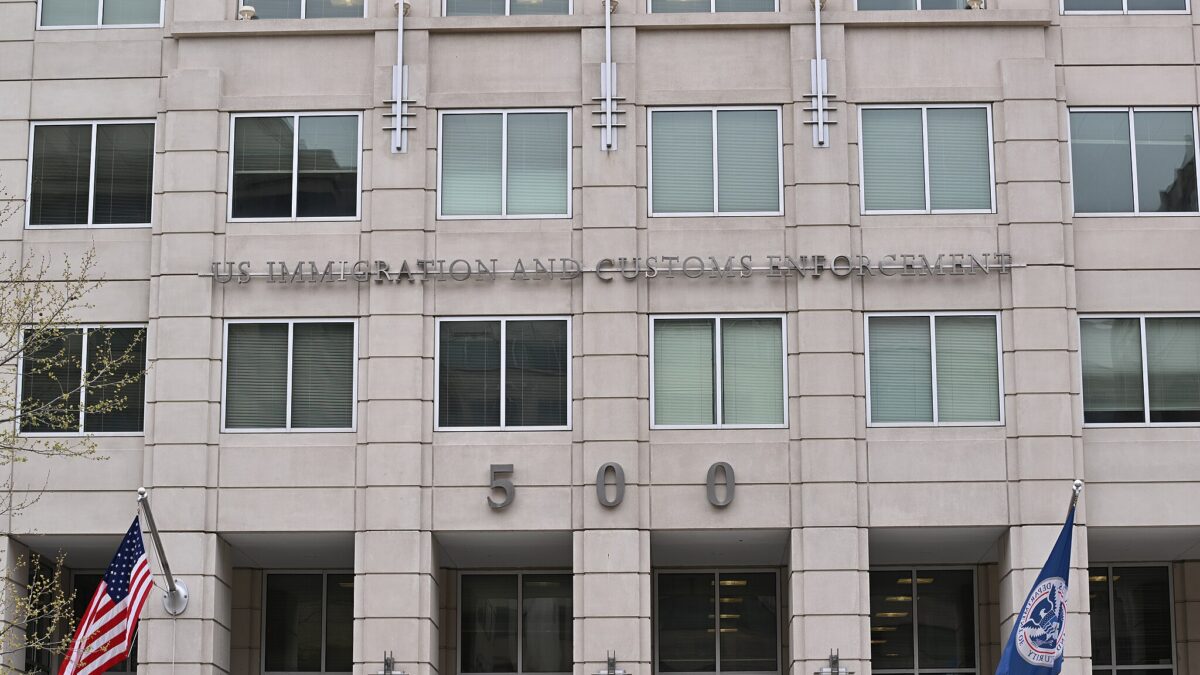In a recent tweet critiquing the legacy of Jon Stewart, I summarized that for my generation, who were coming of age during 9/11 and the war in Iraq, we were desperately in search of anyone who could cut through the corporate media partisanship. We craved an everyman to tell it like it was. We were given Jon Stewart. And just like he taught us, we became smug, disingenuous, and lazy thinkers.
The post went viral with Elon Musk weighing in, stating, “I rather liked the old Daily Show and Colbert Report. But now they’ve gone off in a direction that is…” Thousands agreed.
Three hours later Stewart tweeted, “There is no finer legacy than having the right people hate you. Frauds, liars and hack ideologues. Discuss.” So I thought I should.
Bush, ‘Crossfire,’ and the Birth of an Everyman
It’s Dec. 13, 2000. While all major news outlets analyze George W. Bush’s acceptance speech along predictably partisan lines ad nauseam, a fresh-faced Jon Stewart, host of “The Daily Show,” features a two-second clip of Bush saying, “I was not elected to serve one party…” The camera cuts to Stewart who looks us straight in the eyes: “You were not elected.” Boom! This was the guy who was going to hold our politicians’ feet to the fire and smash the news media corporations that propped them up. This was our guy.
In 2004, with the war in Iraq raging, Stewart appeared on CNN’s long-running debate show, “Crossfire.” He refused to play by their rules and instead chastised hosts Paul Begala and Tucker Carlson. “What you do is partisan hackery,” he said launching into a hostile critique. “You’re doing theatre when you should be doing debate.” It was a brutal assault. He positioned himself perfectly as the disaffected’s everyman. “Come work for us, the people. … We need your help. Right now you’re helping the politicians and corporations and we’re left out there.” It was a star turn.
Leftist Hackery and the Death of the Everyman
In 2004, we forgave Stewart for his obvious support for John Kerry. Anyone was better than Bush, right? But throughout the Obama administration, Stewart increasingly became a mouthpiece for the president. In 2011 and again in 2014, Stewart was secretly invited to the White House to talk policy. After that second meeting, in which the two spoke about the Russian intervention in Crimea, Stewart returned to “The Daily Show” with a laser focus on Putin. In 2015, the L.A. Times perfectly encapsulated the relationship between the two in a piece entitled “When Barack Obama met Jon Stewart: A Love Story.“
Just how did the guy who accused the “Crossfire” hosts of “partisan hackery” become the ultimate political insider who literally took his orders from the Oval Office and shilled them on his show under the guise of comedy?
The Jon Stewart Playbook
There is a deeper and more uncomfortable truth about Jon Stewart, and it is this. He has always been, as he would put it, a hack. A witty one, but a hack nonetheless. As kids, we were dazzled by Stewart’s mugging to the camera, pregnant pauses, slick video montages, and selective editing. It was effective — and funny — to reduce Bush’s speech to a two-second clip and a one-liner. However, it was also smug and condescending, and it used comedy as a replacement for intellectual rigor. And behind that cloak of comedy, there has always been a strong leftist partisanship.
A good example of Stewart’s shtick is a recent episode of his new series “The Problem With.” In “The Problem With White People,” he opens with a montage of (mainly CNN) reporters calling for a “racial reckoning” after the death of George Floyd. He mock stumbles over the word “reparations.” “Oh so you guys (news reporters) are finally ready to talk about racial repar…reckoning” — pregnant pause — awkward eye contact with the camera. Audience laughs. His media critique is a sad imitation of his visceral attack on “Crossfire.” He has become the establishment, and those reporters he mildly rebukes adore.
Instead of the media, Stewart’s real fire is reserved for Mike Pence who awkwardly states, “Now it’s time for us to have ears to hear [black concerns].” Stewart crudely jokes, “Oh, good, because I’ve been using mine for f-cking.” It shows that his naked hostility toward conservatives holds as strong as it did back in the early ’00s. It wasn’t just about Bush. He’s actually a partisan hack and increasingly blunt with age.
Race-Baiting and Bending Facts
Later in the episode, a black woman claims that they burn cities because they are not theirs: “We own nothing.” There follows a rousing montage of historical black activists lamenting the ongoing vestiges of slavery in the USA. It ends with an 1852 quote by Frederick Douglass strategically placed to convince his audience that nothing has changed since before the Civil War.
Stewart also compares the crack crisis in black communities in the ’80s to the ongoing opioid crisis in Appalachia, claiming we make excuses for deprived white people but not deprived black people. As a case in point, he shows a montage of news reports on black riots in Philadelphia in which reporters are critical of participants before showing reporters playfully covering the carnage in the city after the Eagles Super Bowl win. It is deeply cynical. If he were ethical, he would have compared like with like. Deprived blacks burn their cities, deprived Appalachians do not. But this is not new. He pulled this exact same bait and switch when he covered the Baltimore riots in 2014. It is morally and intellectually bankrupt.
Attempting to prove it’s still 1852, he presents several misleading slides on home ownership, segregation, and median household wealth. One states that on average, household wealth for white high school graduates ($115,000) is greater than for black college graduates ($51,000). The figure he flashes on the screen is striking.
How can it be that white people with a high school diploma are earning $115,000 working in McDonalds? Obviously, they aren’t. They made a conscious decision to go into manual trades like plumbing, roofing, etc., and they work damn hard. It is an option open to members of any race who instead chose college.
Another complicating issue is choice of college major. A recent Brookings Institution study showed that black students are much less likely to major in high-paying STEM subjects compared to other races. The number of black PhDs in STEM is well below average across the races while over-represented in lower-paying professions like education. Deceptively, the graph Stewart shows is household wealth. Obviously, in households with two parents, there will be a higher average income. Across all races, black families are dramatically less likely to have two married parents in the home (36 percent) than whites (74 percent) or Asians (85 percent). But why include any of this nuance when one can just blame racism for the disparity?
The Real Legacy of Stewart
Closing out his show on race, Stewart again mock stumbles over the word “reparations” and states that it sets off “white people’s ‘They’re coming for our sh-t’ alarm.” And this was his point all along. It wasn’t a comedy routine. It’s time for white Americans to pay reparations because it’s still 1852.
This older, more tired Jon Stewart is like a sad tribute act to his younger self. He falls back on a trusted method to sell his political messaging: the gags, the mugging to the camera, the slick video montages, and the mild rebuke of adoring news media hosts before unloading on the nearest Republican he can blame the issue of the day on. It is a threadbare routine. Still, he goes through the motions.
In 2004, Jon Stewart took CNN’s “Crossfire” off the air by accusing them of partisan hackery and engaging in political theater. The sad truth is, Jon Stewart has long become a victim of his own criticism. He is the ultimate political insider profiting from tearing America apart, all the while pretending to have its best interests at heart. He poisoned my generation’s ability to conduct civil discourse, and now he calls us “liars, frauds, and hack ideologues” as he lines his pockets. That is his legacy.








